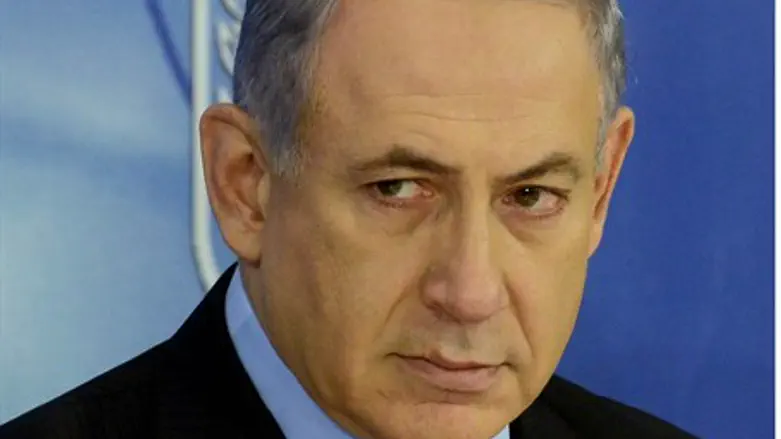
Prime Minister Binyamin Netanyahu was interviewed by BBC on Monday where he addressed the nuclear deal Western powers are trying to arrive at with Iran - and the failure to reach a deal by the latest deadline.
Netanyahu has long been opposed to such a deal, calling the Islamic regime and the possibility of them acquiring a nuclear weapons program "the number one threat" to the State of Israel.
He has also adamantly stressed that his "commitment has been and remains to prevent Iran from acquiring nuclear weapons."
The latest round of talks to establish a deal has arrived at its deadline - November 24, leading to intense speculation that negotiations between Iran and the six powers will be extended yet again. The November 24 deadline was already an extension from the July 20 deadline.
According to a source close to the talks who spoke with Reuters, the talks are likely to be adjourned on Monday and reconvened next month, as the sides failed to reach an agreement.
A Western diplomat in Vienna anonymously confirmed to TheAssociated Press that negotiations will continue for another seven months. A broad agreement should be completed by March 1, with the final details worked out by July 1.
"No deal is better than a bad deal. The deal that Iran was pushing for was terrible. The deal would have left Iran with the ability to enrich uranium for an atom bomb while removing the sanctions," Netanyahu told BBC, referring to pressure Iran was putting on Western powers to lift all sanctions quickly.
"The right deal that is needed is to dismantle Iran's capacity to make atomic bombs and only then dismantle the sanctions. Since that's not in the offing, this result is better, a lot better."
Netanyahu went on to offer his opinion about Iranian actions and capabilities, and what he feels the West should be doing to combat the rising possibility of Iran developing nuclear weaponry.
"Well, I think Iran should not have any capacity to enrich. There's no right to enrich. What do you need to enrich uranium for if you're not developing an atomic bomb? They are. How do we know that? Because they're developing intercontinental ballistic missiles. What do you do with such missiles? The only reason you build ICBMs is to launch a nuclear warhead."
"So Iran, I think everybody understands, is unabashedly seeking to develop atomic bombs and I think they shouldn't have the capacity either to enrich uranium or to deliver nuclear warheads. And I think that's the position that the P5+1, the leading powers of the world, should take."
Netanyahu questioned why the leading powers were not taking this position offering, what he views as the unacceptable answer of "they say, well, it offends Iranian pride."
The Israeli Prime Minister continued: "So what? I mean, if this position was taken in the 1930s against Germany, it would have offended German pride, but it would have saved millions and millions of lives."
Netanyahu then made the Iranian security threat very clear - "you do not want to give this medievalist regime in Iran, that throws acid in the faces of women, that oppresses gays, that subjugates an entire population, that exports terrorism far and wide – don't give these violent medievalists atomic bombs. That's not a good thing for the future of the world and its security."
Netanyahu concluded by offering his hope that world pressure against Iran continues. "I mean, the fact that there's no deal now gives an opportunity to continue the economic pressures that have proven to be the only thing that brought Iran to the table, to continue them, to toughen them. I think that's the road that has to be taken."
In regard to his own country's interest in the continuation of talks and a possible future deal, Netanyahu stated, "Israel is watching very carefully what is happening here and Israel always, always reserves the right to defend itself."